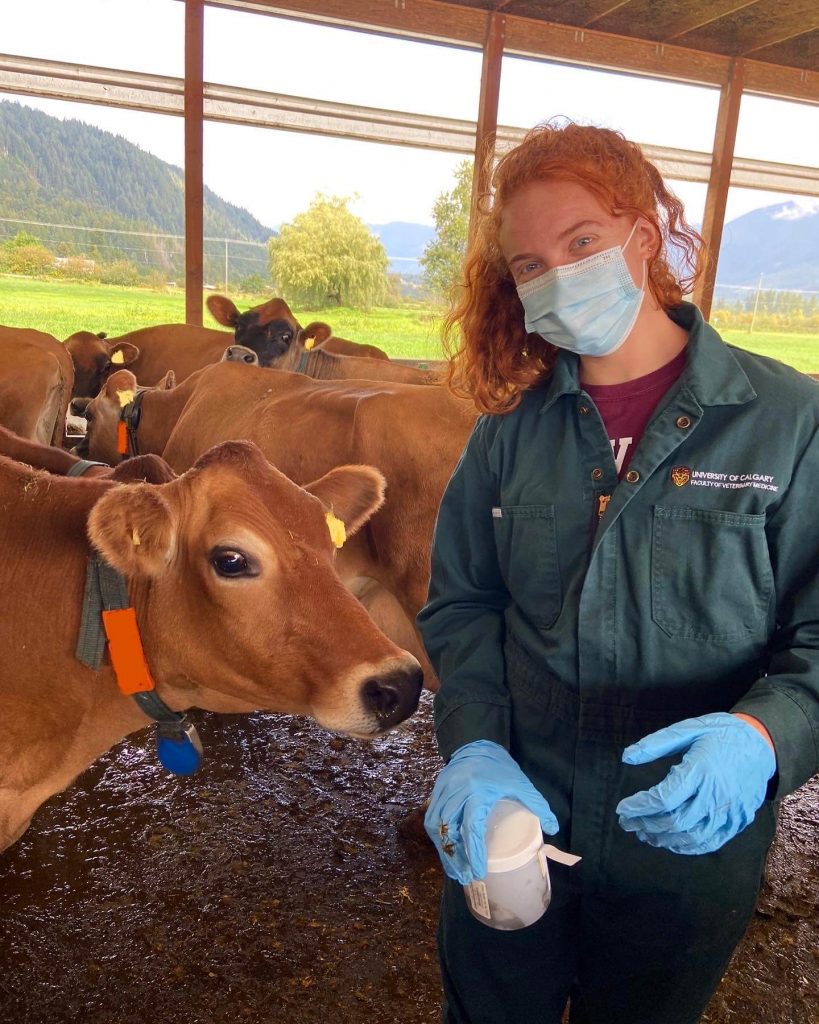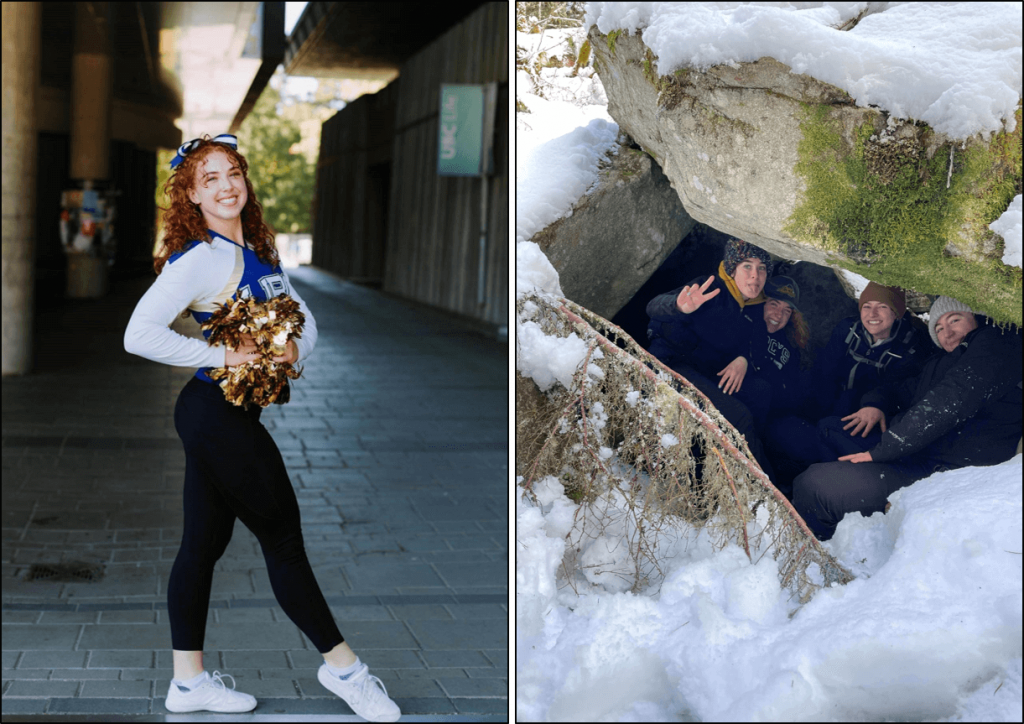
Hello! My name is Mya Baptiste and I am currently in my 5th year of studies in the Faculty of Science. I am originally from Cornwall, Ontario, a small city about an hour outside of Ottawa. I am working towards an honours degree in biology, but I took my fourth year off formal studies to join UBC’s Co-op program. During my co-op year I spent my first term at the University of Calgary working as a research assistant in a dairy epidemiology lab. For my second and third work term I returned to Vancouver and worked as a rehabilitation assistant at an adult day center. This year I will be doing an honours project in Dr. Sarah Benson-Amram’s Animal Behaviour and Cognition (ABC) lab. The lab has joint association with the departments of Forestry and Zoology. Prior to starting my honours project, I volunteered in the ABC lab, assisting with data processing for one of the lab’s PhD students. To gain more hands-on experience with wildlife, last summer I also spent some time volunteering at Critter Care Wildlife Center, which was a super fun experience!
What are you researching?
While working for the University of Calgary I was lucky enough to work as a research assistant for several graduate students in my lab. I worked on many different projects and learnt so many different things in the four short months that I was in Calgary. Some of the highlights included a study on antimicrobial resistance on dairy farms across Canada, a study on the efficacy of mastitis treatment and a study on the prevalence of Johne’s disease across dairy farms in Alberta.
For my honours thesis project I am studying how urban raccoon physiology is impacted by the food that they eat. More specifically, I will be analyzing if/to what degree the blood glucose levels of raccoons correlate with anthropogenic food consumption. I will also see if increased anthropogenic food consumption and blood glucose levels correlate with raccoon body mass.
Why is this research important?
Over the past half decade, urbanization has rapidly increased with a just under 6x more people worldwide living in cities than in 1950. Not only has this change affected us humans, but it has been a big shift for many species of non-human animals. Some animals, termed synanthropes, have been able to thrive in urban environments by making use of human resources and activities. Some well-known synanthropes include raccoons, skunks, rats and squirrels. Although these animals seem to benefit from urbanization, very little formal research has been done to assess how the health of these animals is being impacted by their new lifestyle. My research aims to address this gap in knowledge. The more we know about how our actions as a society affect the wildlife living amongst us, the more able we will be to monitor and minimize the harm that we bring them.
What has been most challenging about doing research?
So far, I’d say that the most challenging part about research has been time-management and staying on schedule with my research while keeping up with my coursework. The tricky part about research is that typically, and unlike classes, there aren’t hard deadlines. I’ve found it hard to make my research a priority on weeks when I have a lot of midterms or other assessments. I’m still working on figuring out a good balance, but something that has helped me so far is scheduling research work blocks into my weekly schedule and treating them as a firm commitment.
How has your unique background influenced your research experience?
A few summers ago, I worked as the volunteer and fundraising coordinator for a wildlife rehabilitation center in Ontario. Although we were licensed to take in all sorts of small mammals, our specialty was raccoons. Before my work at the rescue, I knew very little about raccoons and would have never thought that in a couple years’ time I’d be writing a thesis on them. However, while at the rescue I saw first-hand just how intelligent and individualistic raccoons were and totally fell in love with them. Once the time came around to pick a lab for my thesis project and l learned about the raccoon research that the ABC lab was doing, I knew it was the lab for me and reached out to them right away!
What do you like to do in your spare time?
Since a lot of my time is spent inside studying, in my spare time I love getting outside and staying as active as possible. Some of my favourite outdoor activities include hiking, camping, snowboarding and going to the beach with friends. Since my first year at UBC, I have also been a member of the school’s competitive cheerleading team. With that, I spend a good chunk of my spare time practicing and at the gym weight training. Designating time each day to some form of physical activity really helps me to destress and be more productive with my study time.

What are your plans following graduation?
Following graduation, I plan to head off to vet school. As it stands, I’m hoping to either study at the Ontario Veterinary College or overseas in Australia at the University of Melbourne or Sydney. Although I’m not quite certain what type of animals I’d like to work with, after vet school I’d love to find a job working at the intersection of veterinary medicine and conservation work.